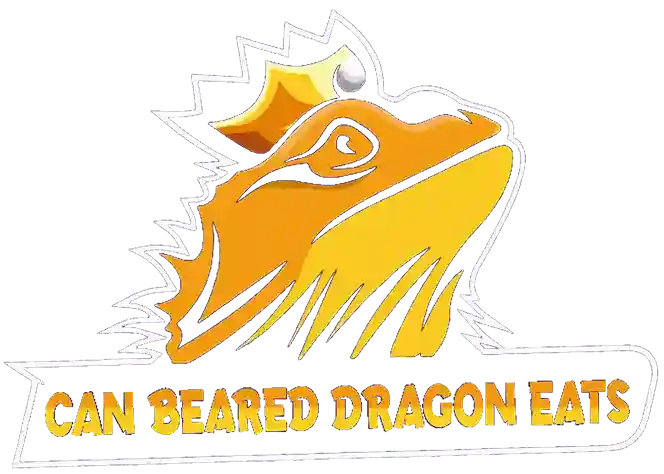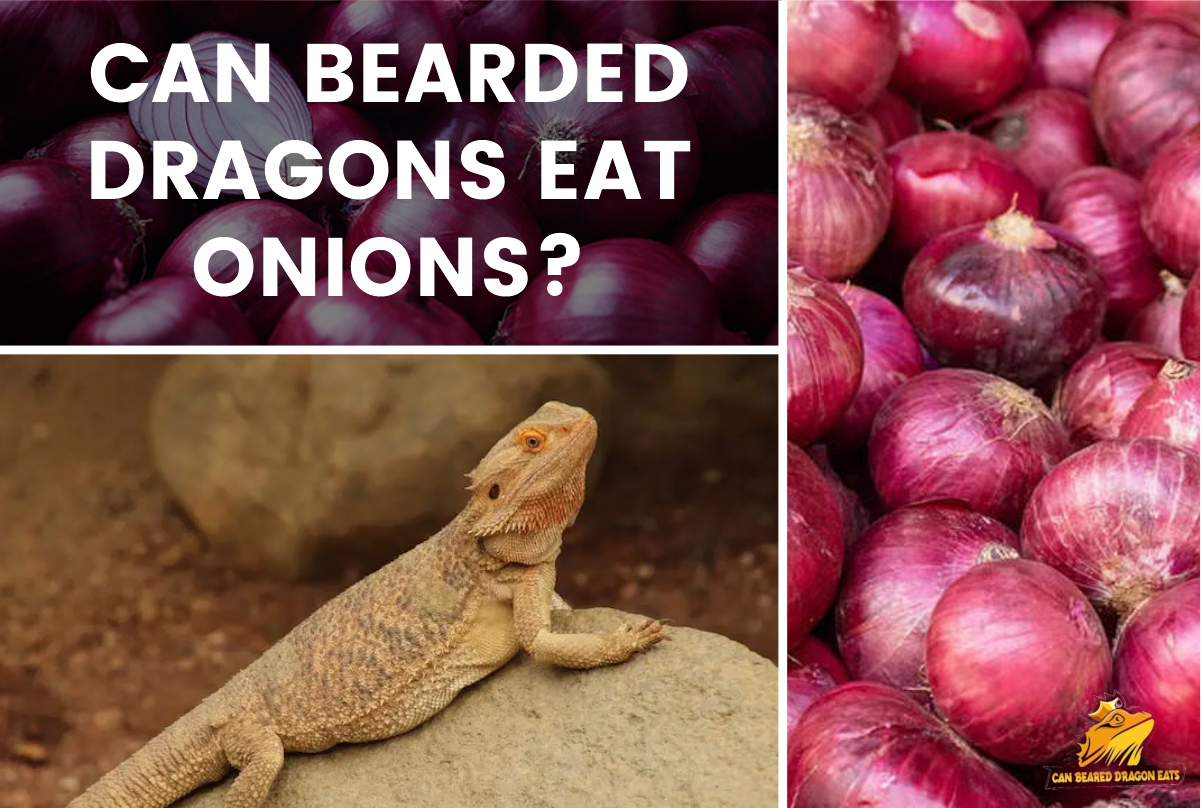Bearded dragons are unique creatures with specific dietary needs, and onions simply don’t fit the bill. Onions are not a good option for your bearded dragons. Due to their acidic nature, they belong to a group of foods that are harmful to our beardies.
Which are unable to tolerate by their delicate digestive system. They have toxic compounds harmful to reptiles, causing digestive and health issues we’ll discuss. So, it’s best to keep onions off the menu when it comes to feeding your scaly companions. Bearded Dragon can eat more vegetables.
In this post, we are going to learn the diet of bearded dragons to see why onions are not a good choice for them. Stick with us for the truth behind this onion debate! So, let’s delve into why.
But fret not! There are plenty of other tasty treats that your bearded dragon will love. Stick to a diet of leafy greens, vegetables, and occasional fruits to ensure they get all the nutrients they need to thrive.
Are Any Types of Onions Safe for Bearded Dragons?
It is not advisable to feed any type of onion to bearded dragons. No variety of onions, including red onions, white onions, yellow onions, or shallots, should be fed to bearded dragons. All types contain compounds like thiosulfate, which are toxic to reptiles, potentially leading to digestive issues.
Bearded dragons can not consume onions in any way, whether raw, dehydrated, or cooked. Because the acidic content of onions remains the same throughout in every form. Keep your bearded dragons healthy by feeding them a diet of veggies, leafy greens, and insects that suit their digestion. This ensures their well-being and long life.
Raw onions contain toxins in their natural state, while cooking doesn’t eliminate them. Raw onions irritate their digestive system, leading to vomiting, diarrhea, and dehydration. These toxins can also damage red blood cells, leading to anemia and potential organ damage.
Why Can’t Bearded Dragons Eat Onions?
Here are the reasons behind this dietary restriction and learn how to keep your beloved beardies happy and healthy.
1. Toxic Compounds in Onions
Onions, like other members of the Allium family such as garlic and shallots, contain compounds that are harmful to bearded dragons. These compounds, notably thiosulphate, can lead to various health issues when ingested by reptiles.
2. Hemolytic Anemia
One of the primary concerns associated with feeding onions to bearded dragons is the risk of hemolytic anemia. Thiosulphate present in onions interferes with red blood cells, causing them to rupture. This condition, known as hemolytic anemia, results in the destruction of red blood cells and a decrease in oxygen-carrying capacity in the bloodstream.
3. Symptoms of Hemolytic Anemia
Bearded dragons that ingest onions may exhibit symptoms such as weakness, lethargy, loss of appetite, and pale mucous membranes. As the condition progresses, more severe symptoms like difficulty breathing, jaundice, and collapse may occur. If left untreated, hemolytic anemia can be fatal for the bearded dragon.
4. Digestive Upset
Apart from hemolytic anemia, onions can also cause digestive upset in bearded dragons. The digestive system of these reptiles is not equipped to handle the compounds found in onions. Consumption of onions can lead to gastrointestinal irritation, diarrhea, and discomfort.
5. Long-Term Health Effects
Even small amounts of onions consumed over time can have detrimental effects on a bearded dragon’s health. Chronic exposure to the toxic compounds in onions may compromise the reptile’s immune system, making it more susceptible to infections and other illnesses.
6. Risk of Organ Damage
Continuous onion consumption can seriously harm a bearded dragon’s internal organs, especially the kidneys and liver. These organs detoxify the body and keep it healthy. Onions can overwhelm them, causing dysfunction and lasting harm.
9. Developmental Concerns
Young or juvenile bearded dragons are highly vulnerable to onion toxicity. Their bodies are still developing and may struggle to process toxins. Regular onion consumption during this critical growth phase can hinder their development and lead to health problems later on.
What To Do If Your Bearded Dragon Has Overdosed on Onions?
If your bearded dragon has accidentally ingested onions or you suspect they have overdosed on onions, it’s crucial to take immediate action to minimize harm and seek veterinary assistance.
Here’s what you should do:
1. Remove Onions from the Environment
First, don’t panic. Stay calm so you can help your bearded dragon. If you know your bearded dragon ate onions, make sure to stop giving them any more immediately. Remove any remaining onions from their enclosure immediately to prevent further ingestion.
2. Monitor Symptoms
Keep a close eye on your bearded dragon for any signs of distress or symptoms of onion toxicity, such as weakness, lethargy, loss of appetite, difficulty breathing, or changes in behavior.
3. Contact a Herpetological Veterinarian
Contact a veterinarian experienced in treating reptiles. Provide them with details about the situation, including the amount of onions ingested, the time of ingestion, and any observed symptoms.
4. Follow Veterinary Guidance
Follow the veterinarian’s instructions carefully. They provide guidance on supportive care measures to administer at home.
5. Supportive Care
If your bearded dragon eats onions, the vet might suggest treatments like fluid therapy and medication. This helps with dehydration and eases symptoms. They’ll also keep an eye on vital signs.
6. Prevent Recurrence
Take steps to prevent future incidents of onion ingestion. Ensure that your bearded dragon’s enclosure is free of any potentially harmful foods. Always research and provide a safe and appropriate diet for your pet reptile.
7. Follow-Up Care
Follow any recommended follow-up appointments or treatment plans provided by the veterinarian. Monitor your bearded dragon closely for any lingering symptoms or complications. Report any concerns to your veterinarian promptly if you notice any.
Remember, onions can be dangerous for bearded dragons, so it’s important to act fast if they accidentally eat them. By following these steps and getting help from a vet, you can help your scaly friend recover.
Recommended Vegetables and Leafy Greens
- Collard Greens: Offer collard greens as about 20-25% of your bearded dragon’s daily diet.
- Mustard Greens: Feed mustard greens to your bearded dragon around 20-25% of their daily intake.
- Kale: Include kale in your bearded dragon’s diet, but limit it to around 10-15% due to its high oxalate content.
- Bell Peppers: Treat your bearded dragon with bell peppers, making up around 10-15% of their diet.
- Squash: Add squash to your bearded dragon’s meals, making up approximately 10-15% of their daily intake.
- Turnip Greens: Offer turnip greens as part of their diet, constituting about 10-15% of their daily greens intake.
- Endive: Include endive in their diet, making up around 5-10% of their greens intake due to its bitterness.
- Cilantro: Provide cilantro as an occasional treat, making up approximately 5-10% of their greens intake for added flavor and nutrients.
- Dandelion Greens: Offer dandelion greens as part of their diet, constituting about 10-15% of their daily greens intake for its nutritional benefits.
And REMEMBER, there are plenty more greens to try out to keep your bearded dragon healthy and happy!
Recommended Fruits & Protein Sources
Blueberries: Offer blueberries occasionally, about 5-10% of your bearded dragon’s diet, as they are high in natural sugars.
- Apples: Provide small slices of apple as a treat, making up around 5-10% of their diet. Be sure to remove seeds and core.
- Strawberries: Offer strawberries occasionally, comprising around 5-10% of your bearded dragon’s diet.
- Mealworms: Feed mealworms as a protein source, but keep them to about 10-15% of your bearded dragon’s diet due to their high-fat content.
- Dubia Roaches: Include dubia roaches as part of their protein intake, making up around 10-15% of their diet.
Several other protein sources are also present to keep their meals balanced!
The Bottom Line
It is clear that bearded dragons should not consume onions in any form, whether raw, cooked, or dehydrated. Onions contain harmful compounds like thiosulfate, which can lead to digestive issues, anemia, and other health problems in these reptiles.
Through our discussion, we’ve highlighted the importance of providing a diet rich in safe vegetables, leafy greens, and insects for the well-being of bearded dragons. Moving forward, it’s essential for reptile enthusiasts to carefully consider their pets’ dietary needs and avoid feeding them foods that could pose a risk to their health. We encourage you to share your experiences and insights in the comments, fostering a community of knowledge-sharing to benefit the care of these fascinating creatures.
- Eastern Bearded Dragon - July 26, 2024
- Why Do Bearded Dragons Bob Their Heads? - July 25, 2024
- Everything You Need to Know About Paradox Bearded Dragons - July 10, 2024

